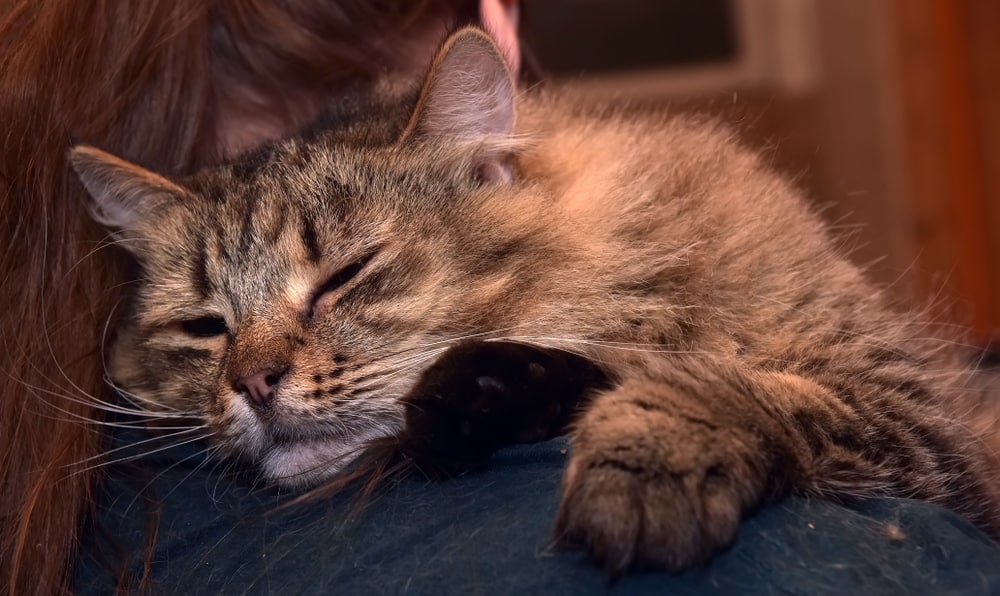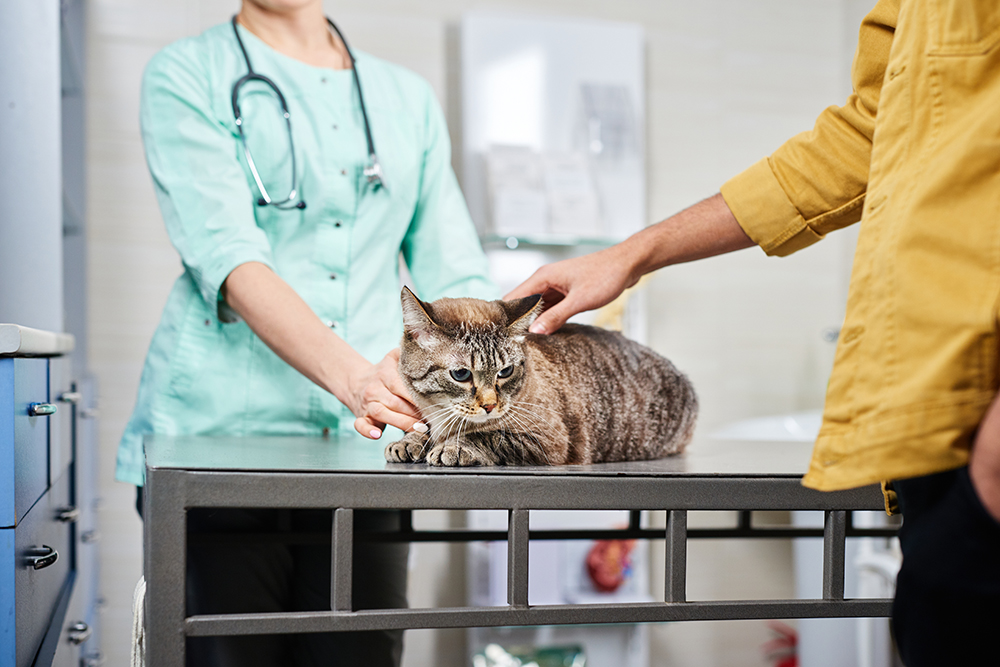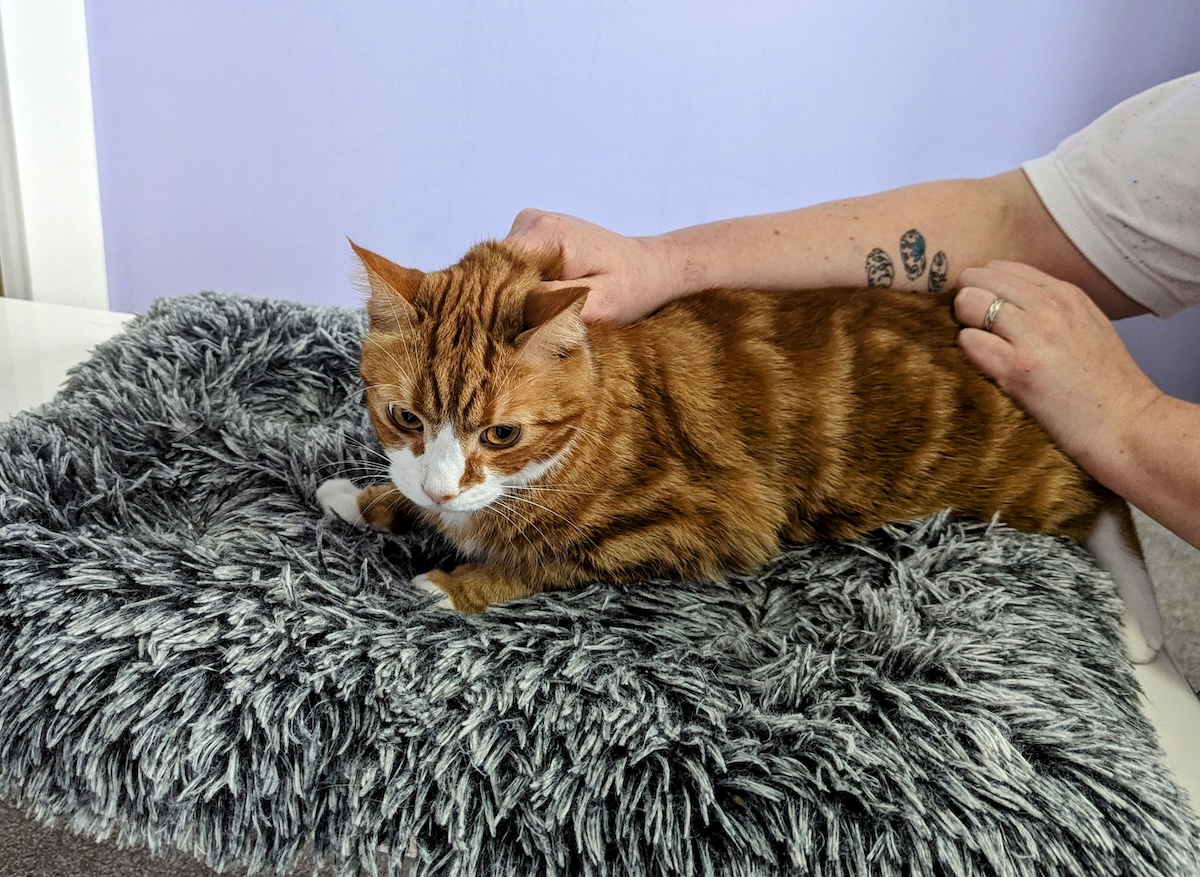Click to Skip Ahead
Watching a beloved family pet get old can be hard. As cats age, they will grow weaker and skinnier. Their behavior might change. They might not be the same cat that you used to know when they were younger. In these situations, it is natural to start contemplating the future. Should you euthanize your cat? When do you need to start considering end of life care? Who ultimately makes that decision? These aren’t fun things to ponder, but they are necessary and natural to think about in the presence of a sick or aging pet.
This guide will help outline the things to consider before making a decision on euthanasia, how the conversation usually starts, and who makes the final decision about your cat. In these emotional situations, knowledge is power, and it is good to be armed with this information before the moment arrives.

The Euthanasia Conversation
The euthanasia conversation is one of the hardest things any pet owner has to go through. Unfortunately, it is often inevitable at some point in your cat’s life. A veterinarian will often broach the subject of euthanasia by having a quality-of-life conversation with you about your pet. Euthanasia is often suggested for pets that have a deteriorating quality of life or ballooning care requirements.
Your veterinarian will talk about your cat’s daily life. Are they having more bad days than good days? Are they in frequent pain or discomfort? Are they behaving normally during the day? Are they eating and drinking? The answers to these types of questions will help guide you toward a decision on euthanasia. My wife is a veterinarian, and she has to have the quality-of-life conversation frequently. It is always given in the interest of the pet and the owner. Owners typically don’t want to see their pets suffer.
- The pet is old and has an incurable disease that is likely to get worse.
- The pet has suffered a severe injury that will be too expensive or too difficult to overcome.
- The pet is having more bad days than good days.
- The pet is in constant pain or discomfort.
- The pet is not eating or drinking properly and is unlikely to recover.
- The pet is not acting normally (i.e., pooping inside, biting family members).
If your veterinarian finds these things in your cat, they are likely going to bring up euthanasia. But who gets to make the final decision about your cat? What if you are not ready to say goodbye?


The Owner Always Makes the Decision
Even if a veterinarian believes that euthanasia is the best course of action, they do not get to make the final decision. The decision of whether to euthanize your cat will always be the pet owner’s to make. Sometimes animals can live much longer than people realize if they are given the proper care. No one can force you to euthanize your cat if you are not ready.
I once had a beloved dog that had a splenic mass that was very concerning. We were given two options: do an expensive surgery that was risky due to my dog’s age or euthanize the dog. I elected to go ahead with the surgery. My dog recovered just fine, and the mass was benign. He lived another 3 years after that. There were risks and financial contributions involved with the surgery, but we opted to do that instead of euthanizing.
In another similar situation, my roommate had a cat that was very old, over 20, and it eventually needed a feeding tube put in. The vet recommended that the cat be euthanized, but my roommate could not bear to let the cat go at that moment. The cat died at home shortly after, but the extra few days with her cat gave my roommate time to process and grieve the situation, which is what she needed at that moment.
In both of these situations, euthanasia was recommended and decided against, with varying outcomes. Veterinarians will not recommend euthanasia unless they think it is in the best interest of the pet or the owner, so they do not recommend it lightly. Still, you always get the final say regarding a euthanasia decision.

The 4 Important Factors to Consider
1. Quality of Life
One of the most important things to consider before euthanizing your cat is its quality of life. As much as we love our pets, it is selfish to keep them in a state of pain or illness because we are too scared to say goodbye. This is especially true because animals do not know that they are sick. They don’t know their prognosis. They don’t understand why they are hurting. Sometimes the most loving thing to do is to help ease your cat’s pain by euthanizing them before they can suffer any longer. If you think that your cat is suffering or languishing, it could be time to consider euthanasia.
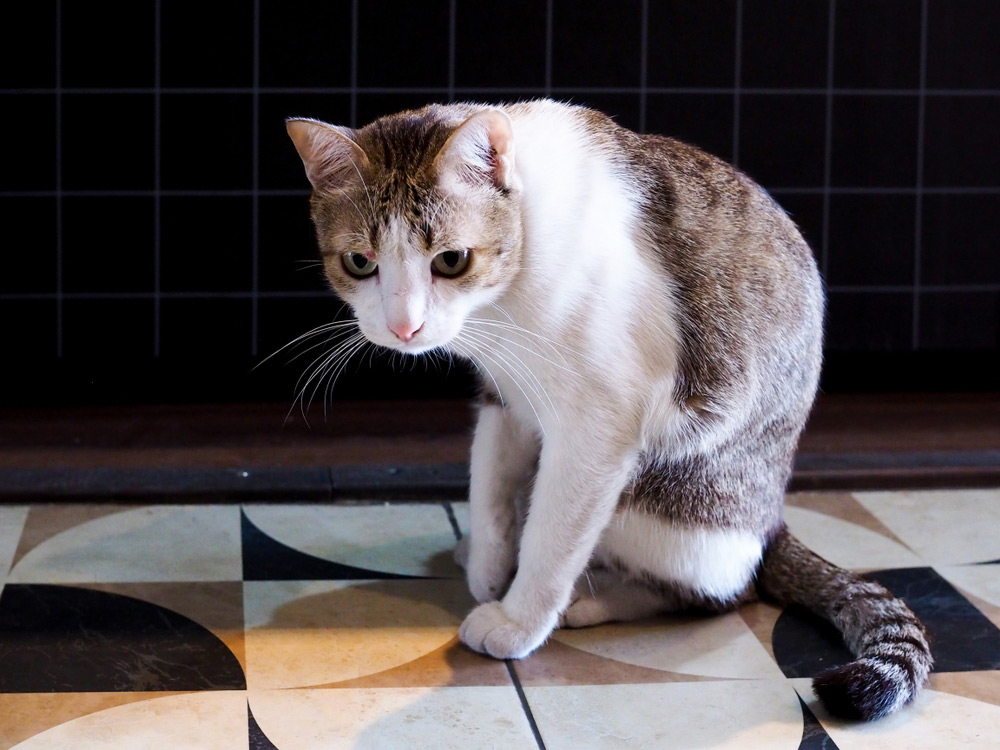
2. Daily Care Requirements
Another thing to consider is daily care requirements. Modern veterinary medicine has progressed rapidly in the previous decade. Vets can confidently keep animals alive for far longer than they used to, but sometimes that comes at the cost of routine care. Some animals will need numerous treatments to keep them alive. This can mean additional trips to the vet, daily medicine, special foods, and attention. Not everyone is equipped to deal with this kind of care, and that is okay.
Cats are particularly finicky because they are difficult to administer medication to, and they are very hard to get to go to the vet. This can make caring for them over long periods of time very difficult. Depending on the long-term prognosis, admitting that you cannot keep up with the necessary daily care is okay. We are only human, after all.
3. Financial Costs
One of the more pragmatic and dismaying things to consider is financial costs. Some procedures and medications can be extremely expensive. Not everyone can afford to drop thousands of dollars on a sick cat, especially if they are old and have lived a good life. There is nothing wrong with that. You can’t be expected to put your family in a precarious financial situation to try to eke out some extra time with your beloved feline. Like the quality-of-life discussion, it can be selfish to harm your long-term financial future in exchange for a few more good days with your cat.
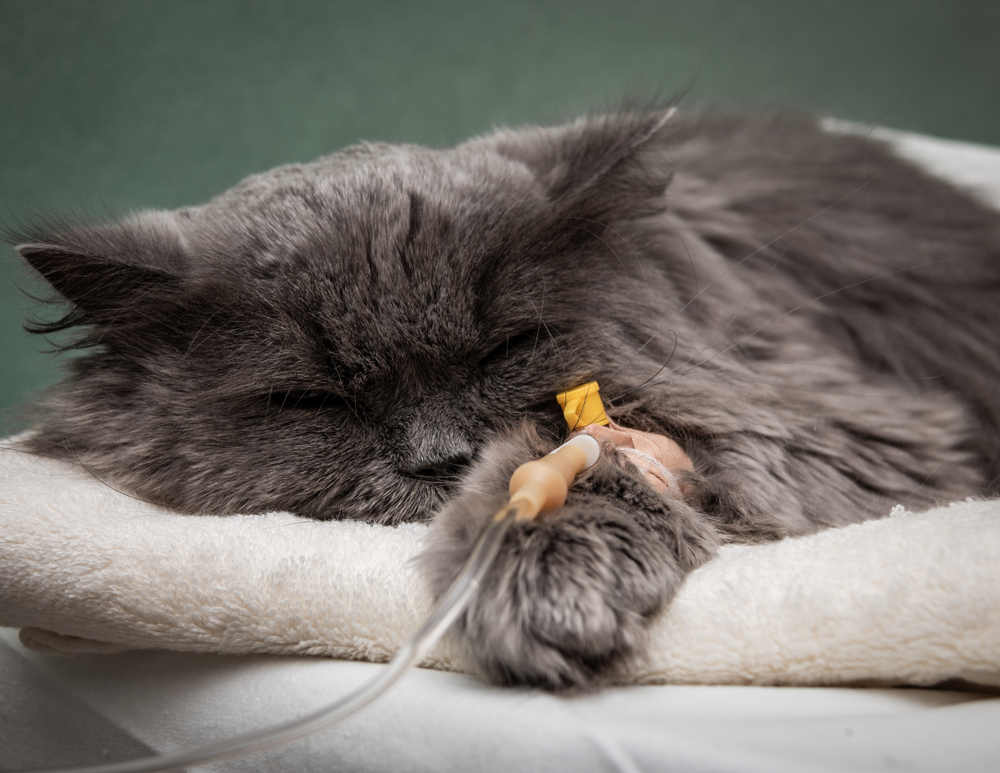
4. Long-Term Outlook
Lastly, you need to weigh the long-term outlook for your cat. When I decided to opt for surgery instead of euthanasia for my aging dog, it was because the outlook was good if he survived the procedure. A successful surgery potentially meant multiple extra years of life. Not all prognoses are that good. Some outlooks are more dire. It is okay to weigh the long-term outcomes with the short-term choices. A surgery that only gets you an extra couple of months with your cat might not be as valuable as one that can net you multiple extra years with your cat.

Make the Decision You Feel Most Comfortable With
In the end, you need to make a decision of when to euthanize a cat that you feel comfortable with. If you do not feel comfortable making a decision on the spot about the fate of your cat, you can take time to ponder it. Do not feel pressured or shamed into making a decision you don’t want to make. In many cases, euthanasia is the best option, but not in every case. If you don’t think you can feel comfortable with the decision a week down the road, you shouldn’t make it in the moment. It never feels good to say goodbye to your cat, but that doesn’t mean that it isn’t the right decision for your animal at the time. Remember, you always have the final say over euthanasia decisions.
The same is true in reverse. If you believe that it is time for your cat to go and your vet wants to try more treatment options, you can still opt for euthanasia. You spend the most time with your cat, and you know them the best. You know when your animal is not thriving. That is why vets defer to the owner’s decision in these important matters.

Conclusion
How to know when to put your cat down? Euthanizing a cat is never an easy decision, but it is yours to make. When the time comes, you will likely have a conversation with your veterinarian about your cat’s quality-of-life and daily routine. In some cases, it might be best to euthanize your cat to end their suffering. That is often one of the hardest moments of a person’s life, but it is one that most pet owners will, unfortunately, be faced with at one point or another. It is important to know the circumstances and your rights before making a final decision.
Featured Image Credit: Anna Krivitskaya

